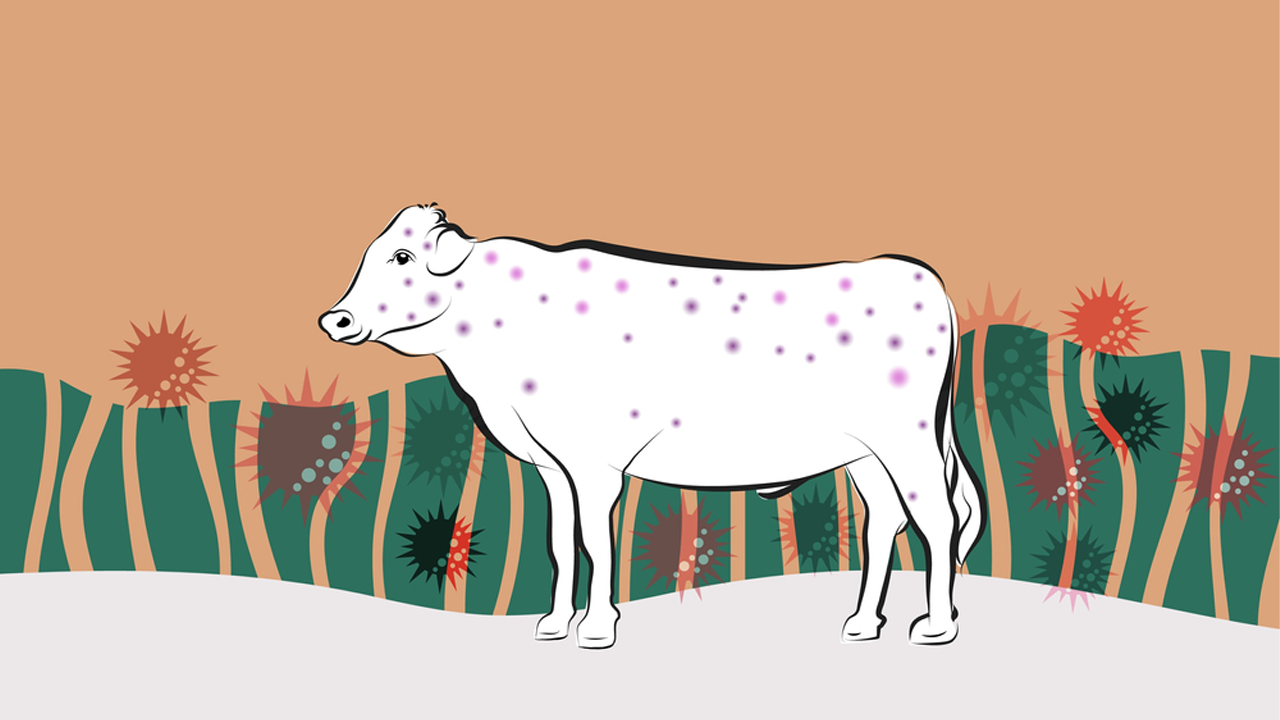If you have turned on the television to watch the news or are involved in a business that involves cows, then you are already aware of the Lumpi virus. Thousands of cattle have died as a result of this lethal virus so far in several parts of India.
What is Lumpi Virus?
Lumpi Virus or Lumpy Skin Disease ( LSD ) can be understood as a vector-borne pox disease among domestic cattle. This viral infection is characterized by the appearance of skin nodules. It is transmitted from one animal to another through insects that feed on blood like ticks, mosquitoes, flies and more.
Besides just causing chronic debility leading to physical illness, this virus could be the reason behind other ailments as well. To be precise, these ailments include poor growth, decreased milk production, infertility, miscarriage and even death.
What are the Symptoms of Lumpy Skin Disease?
The symptoms of lumpy skin diseases include the following:
- High Fever
- Lacrimation causes excessive tear flow from the eyes
- Loss of movement
- Hypersalivation
- Nasal Discharge
- Development of Ulcerative lesions
- Multiple Nodules
- Edematous swelling in the limbs
Also know that the incubation period of LSD is supposed to be 28 days but the symptoms in infected animals can arrive within a week.
However, many are still not aware of what this virus is about? or how it can be treated. If you are among them, then there’s no need to rush anywhere. Just keep reading until the end to discover some relevant information and help.
How Can You Treat and Further Prevent Lumpy Skin Disease?
If you are involved in the cattle business or have cows to look after, then know that there are several ways you can treat and prevent the further spread of lumpy skin disease. To be precise, the ways you can offer aid includes
Ways of Treatments
- Antiviral treatment
In order to treat the cattle, you can use antiviral treatment to lower the viral load in the infected cattle. When you do this, it will help to stop further damage to the immune response. Also, it will prevent the risk of multiple organ damage besides aiding in faster recovery.
- Antibiotics
In order to control the secondary bacterial infection, make sure to administer antibiotics like Ventaflox Inj and Ventaceft Inj from stores like Vetina. The Ventaflox Inj helps to aid mixed bacterial infections besides wound and skin infections.
It comes with excellent tissue penetration and has high bioavailability. On the other hand, Ventaceft Inj can be an excellent choice to treat skin and soft tissue infections besides the treatment of chronic clinical mastitis.
- Analgesic, Anti Inflammatory and Anti – Pyretic Drugs
If your cows are already experiencing high fever, then it is suggested to give them paracetamol to control it. You can also use Melopara from stores like Vetina to relieve fever alongside pain and inflammation.
This allows a faster return to normal functioning besides promoting increased productivity. Your cattle would benefit not only from rapid recovery but reduced stress from this medication.
This allows a faster return to normal functioning besides promoting increased productivity. Your cattle would benefit not only from rapid recovery but reduced stress from this medication.
- Vaccination
In order to spread the infection to other animals present in the cattle, make sure to vaccinate each of them.
Ways to Prevent
- Sanitize the Cattle Sheds
In order to reduce the chance of the disease being spread by a vector, it is suggested to sanitize the cattle sheds.
Also, you must treat the cattle with insect repellents on a regular basis. Although it cannot completely stop transmission, this measure may lower the risk.
- Restricting Vector Breeding Sites
In order to reduce the number of vectors on and around the cattle, make sure to restrict vector breeding sites. This could be a sustainable, affordable and environmentally friendly step to saving your cattle.
To be precise, you must limit breeding sites like standing water sources, slurry, and manure, as well as improve drainage in holdings. Also, make sure to apply medications like MTB Bolus from stores like Vetina on cattle that are wounded to treat them and stop the spread of insects.
- Purchasing New Animals
The risk of spreading the disease to a healthy herd increases when you purchase fresh animals who are either carrying the disease or were infected previously.
It is advisable to restrict the introduction of new animals into the herd or carry out examinations to get a clearer sign of their healthiness. Also, make sure that they should be quarantined or kept apart from the rest of the herd for at least a month or more.





